VAI Epigenetics Symposium: Exploring the Epigenome, Transcriptome and Metabolome
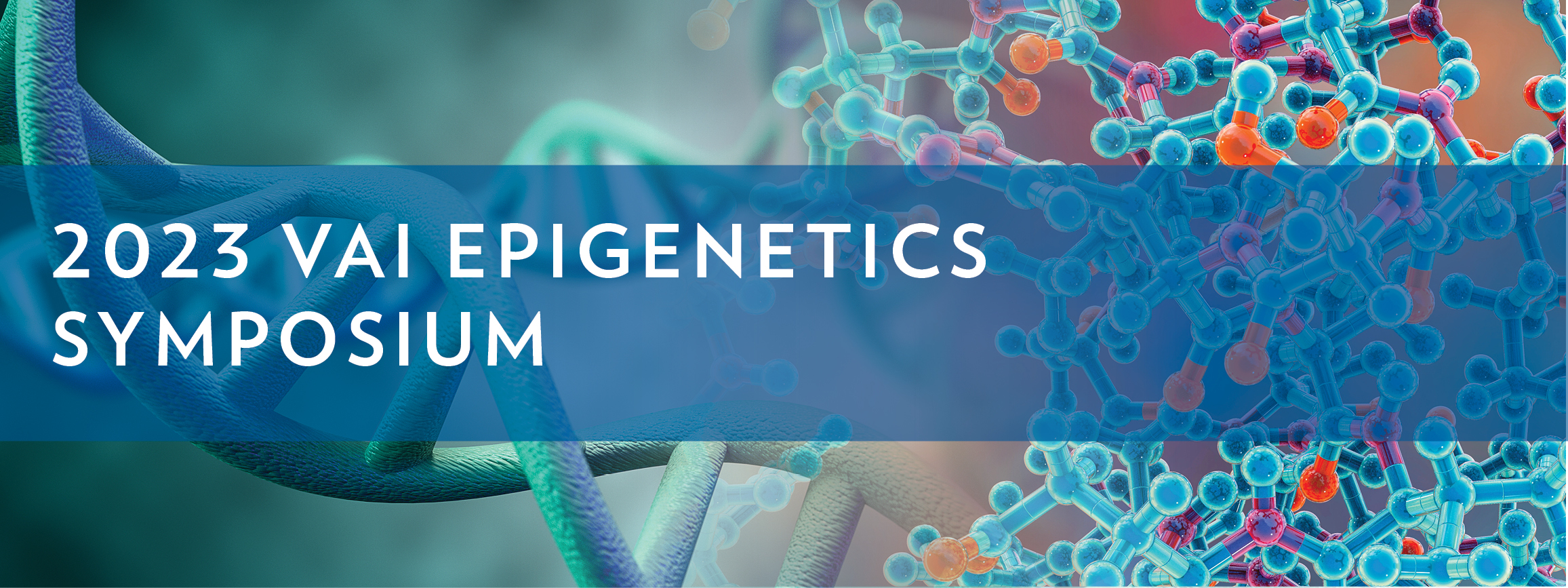
The 2023 VAI Epigenetics Symposium: Exploring the Epigenome, Transcriptome and Metabolome will highlight the latest advances in epigenetics research, from chromatin and transcriptional regulation to developmental and cancer cell plasticity.
This year, the symposium also will explore interactions between epigenetics and cellular metabolism, where pioneering efforts have recently spotlighted causal connections between cellular uptake and routing of metabolites to triggerable switches in cell fate.
Our outstanding roster of speakers will highlight:
- Integration and interactions between the (epi)genome, transcriptome and metabolome
- Coupling of the genome to metabolic states
- Epigenetic heterogeneity, plasticity and functional state triggering
- Exploring the scales of –omics capabilities: new modalities and new depths
- Probabilistic and developmental programming
For questions or to be added to our email list, please contact Courtney Zirkle at [email protected].
Monday, September 18, 2023
Breakfast
Opening remarks
Van Andel Institute
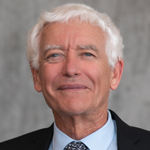
Session 1 (Chair: Sara Nowinski, Ph.D.)
McLane Watson, Ph.D.
Van Andel Institute
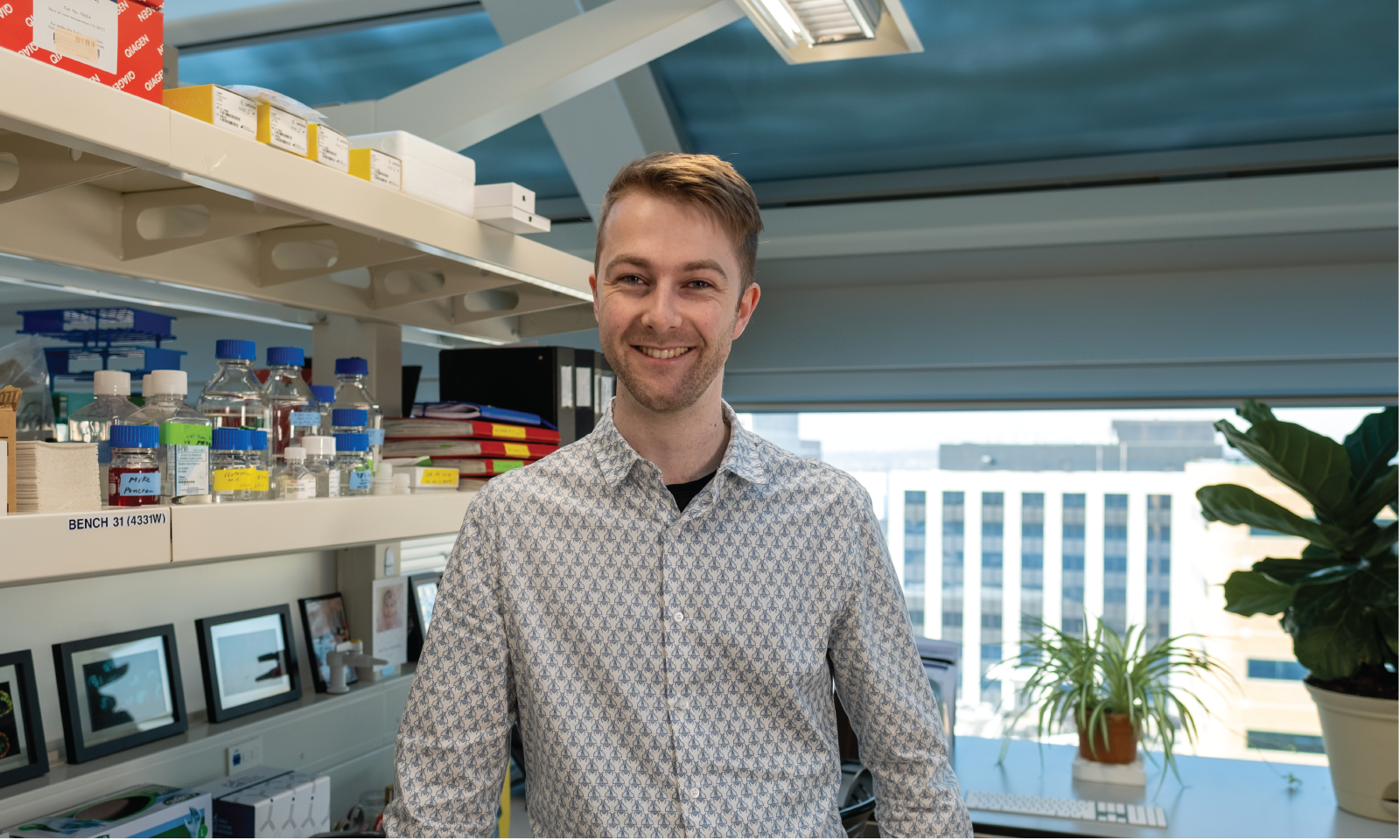
Metabolic requirements for CD8 T cell chromatin remodeling during the naïve to effector transition
Sophie Trefely, Ph.D
Babraham Institute, Cambridge
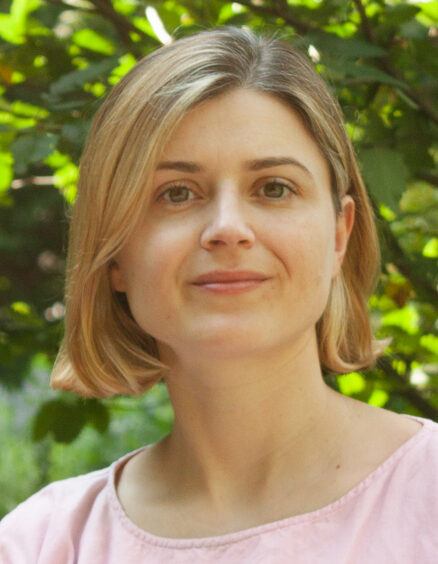
The nucleus as a dynamic metabolic compartment linking nutrients to chromatin modification
Maxim N. Artyomov, Ph.D.
Washington University
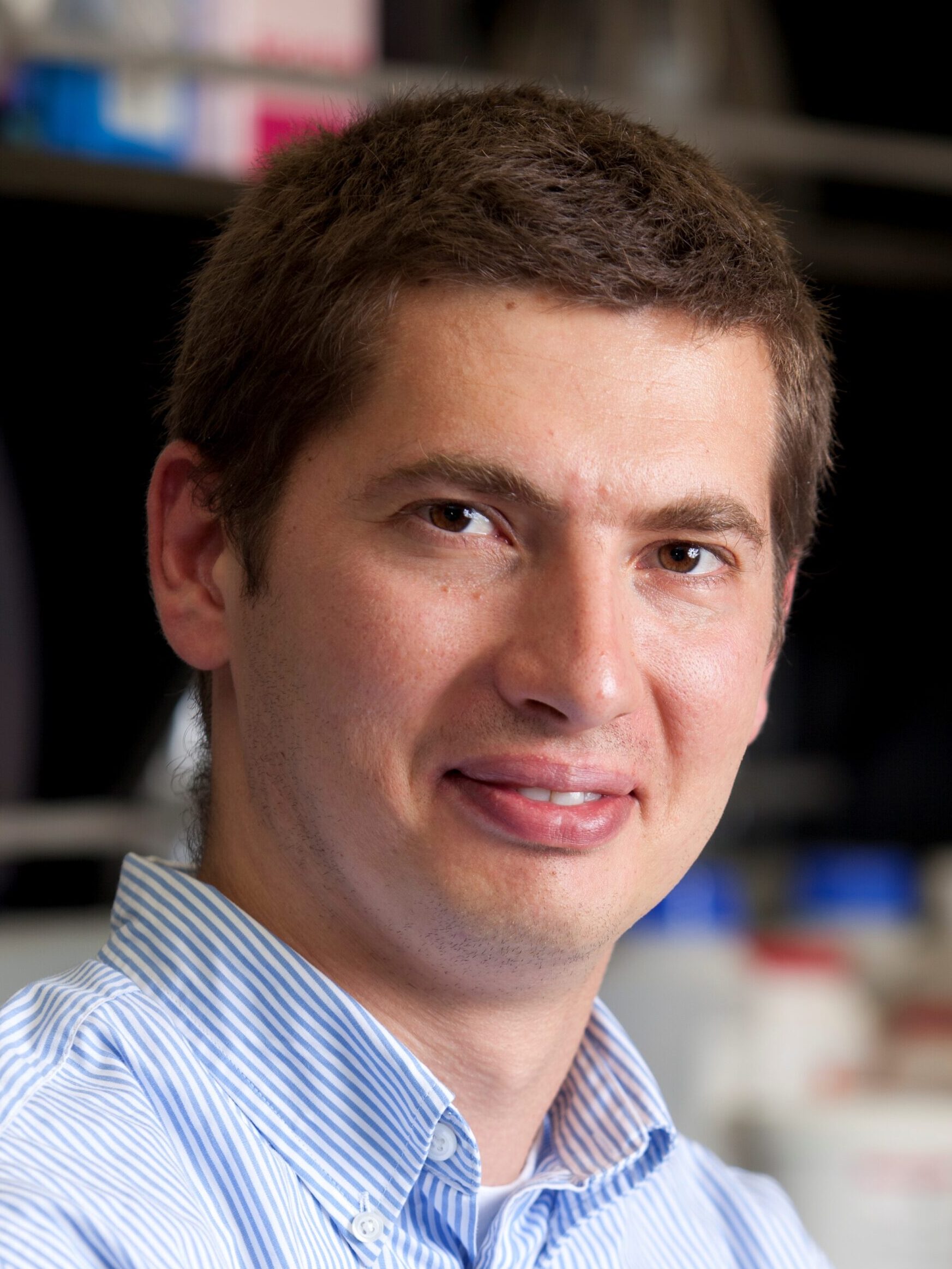
Talk title TBD
Coffee break
Session 2 (Chair: Nick Burton, Ph.D.)
Heidi Lempradl, Ph.D.
Van Andel Institute
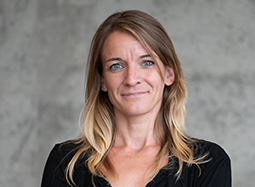
A novel methodology for the time-resolved assessment of early embryonic metabolism.
Ilaria Panzeri, Ph.D.
Van Andel Institute
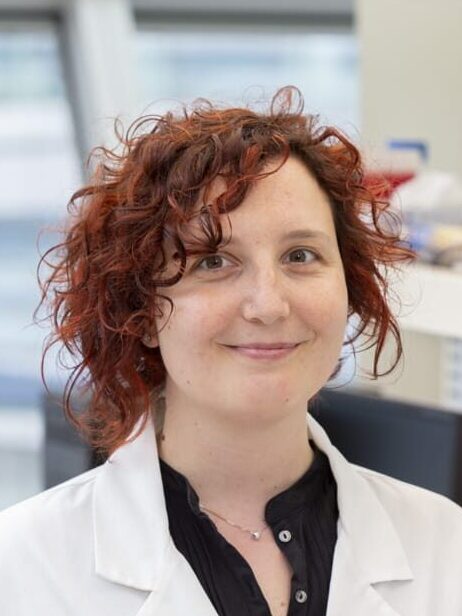
Developmental priming of cancer susceptibility.
Dustin Schones, Ph.D.
City of Hope
Epigenome dynamics in metabolic disease
Lunch
Session 3 (Chair: Kelsey Williams, Ph.D.)
Benjamin A. Garcia, Ph.D.
Washington University School of Medicine
Quantitative proteomics for understanding epigenetic mechanisms in human disease
Scott Rothbart, Ph.D.
Van Andel Institute
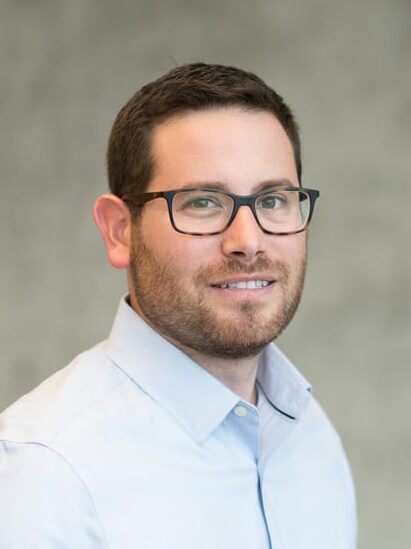
Molecular mechanisms of epigenetic crosstalk
Benjamin Kidder, Ph.D.
Wayne State University
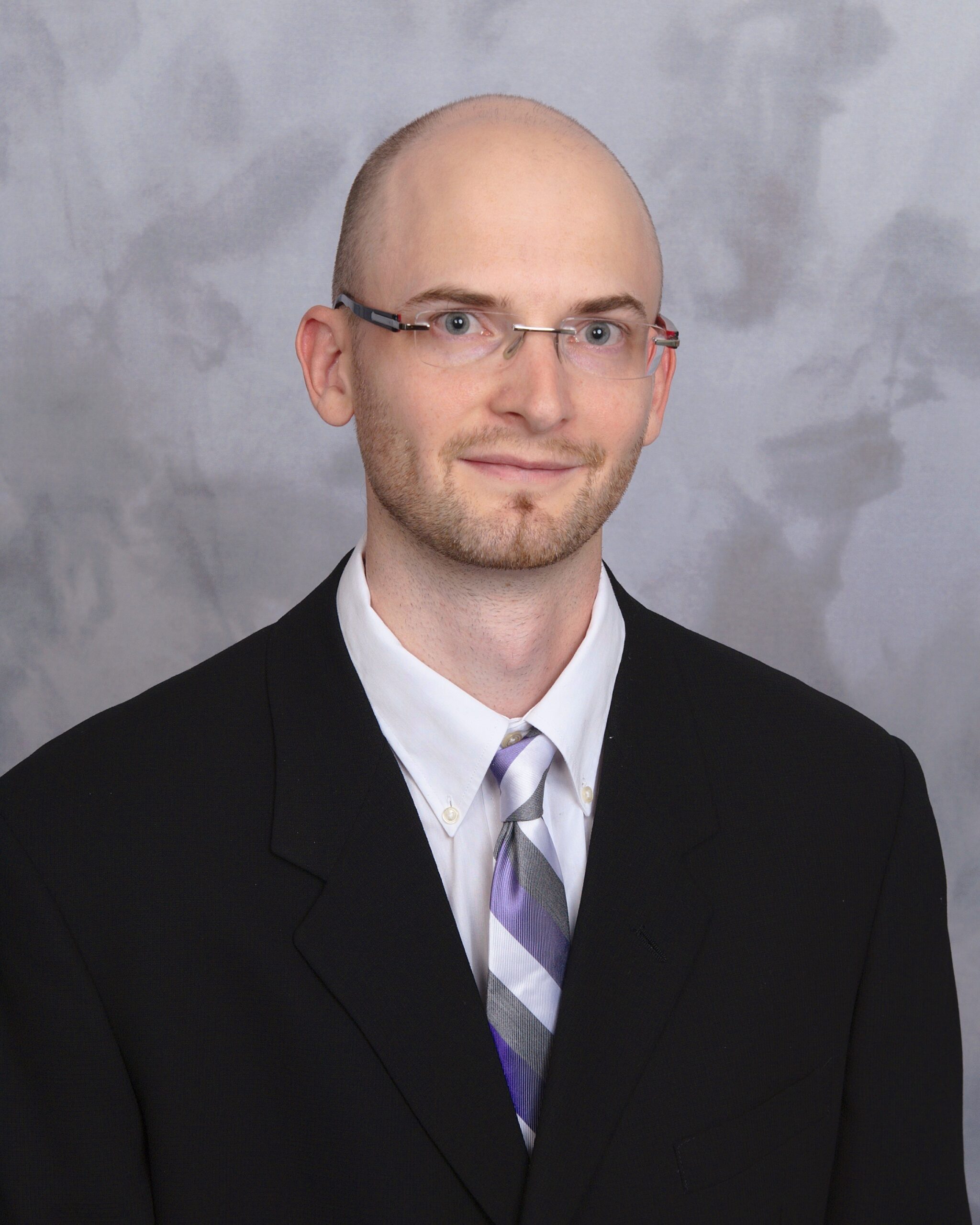
Histone demethylase KDM5B regulation of stem cell and cancer cell fate decisions
Coffee Break
Keynote (Chair: J. Andrew Pospisilik, Ph.D.)
Jeremy W. Prokop, Ph.D.
Michigan State University

Elevating sequencing into understanding rare diseases and environmental impacts of clinical conditions
Closing remarks
Van Andel Institute
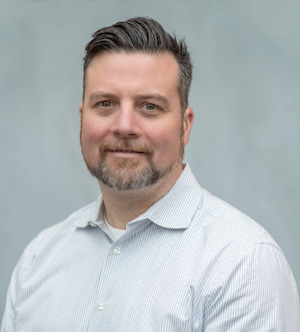
Poster session and reception at VAI
We look forward to sharing additional speakers soon!
Data Science Advisor, Office of Research, Corewell Health
Assistant Professor, Department of Pediatrics, Michigan State University
Dr. Prokop received from the University of Akron a B.S. in microbiology, B.S. in animal physiology, and a Ph.D. in integrated biosciences, all of which rooted interest in merging different scientific disciplines. He then was a postdoctoral fellow in the lab of Howard Jacob at the Medical College of Wisconsin to advance systems for characterizing human variants. He followed the Jacob lab to HudsonAlpha Institute for Biotechnology where he also worked as a senior scientist in the lab of Richard Myers. In 2018, Dr. Prokop formed his lab at Michigan State University and in 2023 he started a new leadership role at Corewell Health. The Prokop lab assists in implementing new sequencing tools and bioinformatics to clinical and animal model systems. They specialize in variant characterizations, RNA sequencing with various platforms, viral/bacterial characterizations, and the implementation of induced pluripotent stem cells (iPSCs) into the preclinical modeling of disease. The lab’s goal is to bring the expansion of sequencing past just clinical whole genome, helping to reach a future where genomics can lend insights to each individual.
Washington University
Maxim Artyomov, Ph.D., is an Alumni Endowed Professor in the Pathology & Immunology Department at the Washington University in St.Louis. The Artyomov Lab works in the field of systems immunology, particularly focusing in the areas of immunometabolism (Nat Rev Imm, 2019) and aging (Nat Rev Imm, 2021). A key scientific approach in the Artyomov Lab is generation and analysis of high-dimensional data coupled with detailed in vitro and in vivo follow-up using classical immunology/biology approaches.
One major example of this approach is utilization of metabolic and transcriptional data integration to dissect metabolic remodeling of activated macrophages, which identified glutamine dependence of M2-polarization, metabolic breakpoint (Idh) in TCA cycle of M1-activated macrophages, rewiring toward aspartate-argininosuccinate shunt and the redirection of the metabolic flux to itaconate production (Jha et al, 2015). This systematic follow-up work led the Artyomov Lab to the discovery of anti-inflammatory action of itaconate such as mild inflammasome inhibition (Lampropoulou et al, 2016), the electrophilic properties of itaconate (Bambouskova et al, 2018) and its ability to enhance type I interferon signaling (Swain et al, 2020) and establish tolerance to late inflammasome activation (Bambouskova et al, 2021).
In a parallel effort, the Artyomov Lab applied a systems biology approach to understand the aging of the immune system in both mice and humans and defined a distinct subpopulation of age-associated GZMK+ CD8 T-cells that is dominant in old mice and is characterized by exhaustion markers (Immunity, 2021). The Artyomov Lab demonstrated some unique in vitro inflammatory properties of these age-associated CD8 T cells as well as the fact that their development depends on the aged environment. Human aging has been further detailed in their massive profiling of PBMCs from ~250 donors using a custom CYTOF panel and single-cell RNA-seq (Nat Aging, 2021a; Immunity accepted, 2023). In separate work, the Artyomov Lab provided comprehensive multiomic characterization of the aging of the classical human monocytes and defined new DNA methylation signatures of aging (Nat Aging, 2021b).
Raymond H. Wittcoff Distinguished Professor and Head Department of Biochemistry and Molecular Biophysics, Washington University School of Medicine
Benjamin A. Garcia obtained his B.S. in Chemistry at UC Davis in 2000, where he worked as an undergraduate researcher in Prof. Carlito Lebrilla’s laboratory. He received his Ph.D. in Chemistry in 2005 at the University of Virginia under Prof. Donald Hunt and then was an NIH NRSA Postdoctoral Fellow at the University of Illinois under Prof. Neil Kelleher from 2005-2008. From there, Ben was appointed as an Assistant Professor in the Molecular Biology Department at Princeton University from 2008-2012, until his recruitment as the Presidential Associate Professor of Biochemistry and Biophysics at the University of Pennsylvania Perelman School of Medicine in 2012, promoted to full Professor in 2016, and named the John McCrea Dickson M.D. Presidential Professor in 2017. Ben moved in the summer of 2021 to the Washington University School of Medicine in St. Louis to become the Raymond H. Wittcoff Distinguished Professor and Head of the Department of Biochemistry and Molecular Biophysics. The Garcia lab has been developing and applying novel proteomic approaches and bioinformatics for interrogating protein modifications, especially those involved in epigenetic mechanisms such as histones during human disease, publishing over 385 publications. He is presently an Associate Editor of the Analytical Chemistry, and Mass Spectrometry Reviews journals; and serves on the editorial boards for the Molecular Omics, the Journal of Proteome Research and the Molecular and Cellular Proteomics journals. He also serves on the Board of Directors for the U.S. Human Proteome Organization (HUPO), the HUPO Governing Council/Executive Committee and the Executive Committee of the American Chemical Society (ACS) Analytical Chemistry Division. Ben has been recognized with many honors and awards for his mass spectrometry research including the American Society for Mass Spectrometry (ASMS) Research Award, a National Science Foundation CAREER award, an NIH Director’s New Innovator Award, the Presidential Early Career Award for Scientists and Engineers (PECASE), an Alfred P. Sloan Fellowship, the PITTCON Achievement Award, the Ken Standing Award, the ACS Arthur F. Findeis Award, The Protein Society Young Investigator Award, the ASMS Biemann Medal, the HUPO Discovery in Proteomic Sciences Award, and was named a Fellow of the Royal Society of Chemistry.
Assistant Professor, Department of Oncology, Wayne State University School of Medicine, Karmanos Cancer Institute
Benjamin Kidder’s research focuses on epigenetic mechanisms of stem cell function, cancer epigenetics, transcriptional networks, genome stability, and reprogramming. Dr. Kidder graduated from Saint Olaf College where he majored in Chemistry and Biology, and then he performed research at the NIDCR/NIH as a Postbaccalaureate pre-IRTA Fellow. He received his Ph.D. in Molecular, Cellular, Developmental Biology and Genetics (MCDB&G) from the University of Minnesota, followed by research as a postdoc and Principal Investigator at Merck/EMD Serono Research Institute. He continued his postdoctoral research in Keji Zhao’s Lab at NHLBI/NIH. Dr. Kidder is currently an Assistant Professor in the Department of Oncology at Wayne State University and member of the Barbara Ann Karmanos Cancer Institute.
Assistant Professor, Department of Metabolism and Nutritional Programming, Van Andel Institute
Dr. Adelheid (Heidi) Lempradl is an assistant professor in Van Andel Institute’s Metabolic and Nutritional Programming group, where she investigates how the parental metabolic state is transmitted through generations. She earned her diploma and her Ph.D. from University of Vienna, where she used fluorescent probes to study the structure and folding of lipid membranes and RNAs. She continued her RNA work as a postdoctoral fellow in the lab of Dr. Leonie Ringrose at University of Austria, followed by a fellowship in the lab of Dr. Asifa Akhtar at Max Planck Institute of Immunology and Epigenetics in Freiburg, Germany. Most recently, she was a fellow in the lab of Dr. J. Andrew Pospisilik, also at Max Planck. Her research was the first to demonstrate that acute paternal diet of Drosophila can reprogram offspring metabolism. This work also identified the first epigenetic signature of obesity that is conserved across species, which established the value of Drosophila as a model for intergenerational inheritance. She was the recipient of the 2002 DOC-fFORTE Ph.D. Fellowship from the Austrian Academy of Sciences, was nominated for the Helmholtz Young Investigator Diabetes (HelDi) Award in 2018, and has given invited talks at numerous meetings and symposia, including the keynote address at the SETAC/iEOS Joint Topic Meeting on Environmental and (Eco) Toxicological Omics and Epigenetics.
Associate Professor, Department of Epigenetics, Van Andel Institute
Dr. Scott Rothbart is an internationally recognized expert in the field of epigenetics, particularly in the area of chromatin regulation through histone post-translational modifications. He earned a B.S. in food science and human nutrition from the University of Florida, followed by a Ph.D. in pharmacology and toxicology from Virginia Commonwealth University in the lab of Dr. Rick Moran. Dr. Rothbart then completed a postdoctoral fellowship in Dr. Brian Strahl’s lab at the University of North Carolina at Chapel Hill. He established his lab at Van Andel Institute in 2015 and was promoted to associate professor in 2018. Dr. Rothbart’s work has contributed fundamental insights into mechanisms of epigenetic regulation and has introduced new tools and methodologies to the field. He is the recipient of numerous awards and honors, including a K99/R00 career development award from the National Cancer Institute and an R35 Maximizing Investigators’ Research Award (MIRA) from the National Institute of General Medical Sciences.
Tenure Track Group Leader, Epigenetics and Signalling Programmes, Babraham Institute, Cambridge CB22 3AT, UK
Dr. Sophie Trefely’s research interest is in the role of metabolites as signaling molecules connecting dietary nutrients to health. She established her research group at the Babraham Institute, Cambridge, UK in 2022. Her lab investigates metabolic regulation in the nucleus with the goal of understanding how nutrients affect epigenetics and how this may be manipulated for cell reprogramming.
Dr. Trefely completed her BMedSci(Hons) at UNSW, Australia in 2008 and her Ph.D. training in the lab of David James studying insulin action at the Garvan Institute of Medical Research in 2015. Her postdoctoral research at the University of Pennsylvania was jointly between the labs of Kathryn Wellen and Nathaniel Snyder and focused on the biological roles of acyl-CoA metabolism, and metabolomics. She developed rigorous approaches for subcellular metabolite analyses by mass spectrometry revealing distinct regulation of nuclei compared to other compartments. Current work in the Trefely Lab investigates the biophysical properties that define the nucleus as a metabolic compartment, metabolic pathways connecting nutrients to nuclear metabolites, and how nuclear metabolism and epigenetic change-of-state are coordinated in differentiation.
Postdoctoral Fellow, Russell Jones Laboratory, Van Andel Institute
Dr. McLane Watson was born and raised in the small, beautiful town of Louisville, Colorado. In high school, he took a course in biotechnology taught by Kristin Donley that highlighted many exciting ways in which molecular biology was being applied to improve health and society. Mrs. Donley’s passion for teaching and exciting course material inspired him to pursue a career in biomedical research. In 2011, Dr. Watson began his collegiate career at Hope College in Holland, Michigan, where he majored in biology and minored in music. As a sophomore, Dr. Watson began doing research in the laboratories of Dr. Aaron Putzke and Dr. Jeremy Van Raamsdonk, where he studied C. elegans and aging. For his role in this work, he was awarded a Barry M. Goldwater Scholarship honorable mention and co-authored a paper that was published and highlighted in the journal Genetics.
Dr. Watson’s passion for cancer research is rooted in the loss of several family members, including an uncle and two grandmothers, to various cancers. While not alone in experiencing this type of loss, Dr. Watson felt called to help solve the devastating problem of cancer. After graduating from Hope College, Dr. Watson joined the lab of Dr. Cindy Miranti at Van Andel Institute in Grand Rapids, Michigan, as a lab technician. In Dr. Miranti’s lab, Dr. Watson worked on the intrinsic mechanisms of tumorigenesis in prostate cancer cells.
Around this time, the first examples of checkpoint blockade immunotherapy had been approved by the FDA and were changing cancer treatment and outcomes for the better. Inspired by immunotherapy’s success and the idea of an ever-adapting immune system to fight an ever-adapting cancer, Dr. Watson left Dr. Miranti’s lab to pursue a Ph.D. in tumor immunology at the University of Pittsburgh in the lab of Dr. Greg Delgoffe. Here Dr. Watson’s work focused on naturally immunosuppressive regulatory T cells (Tregs) and how they fuel their metabolism to survive and function in the metabolically harsh tumor microenvironment. Dr. Watson’s work culminated in a first author paper published in Nature for which he was awarded the Stephen L. Phillips Scientific Achievement Award, given by the University of Pittsburgh Biomedical Graduate Student Association for the best paper of the year.
After completing his doctorate, Dr. Watson began a postdoctoral fellowship in the lab of Dr. Russell Jones back at Van Andel Institute, where he investigates how metabolism shapes T cell function through epigenetic mechanisms.
Submitted abstracts should represent original research and may cover any biomedical research topic. The title should be brief and descriptive, and the body should include rationale, methods, and results. Please prepare abstracts using the below template. Abstracts should be submitted during the registration process.
TITLE OF ABSTRACT IN ALL CAPS (STYLE = TITLE)
Presenting Author1,2, Other Author1, and Last Author1,3(Style = Authors)
1First Dept., Institution, City, State, Country, 2Second Dept., Institution, City, State, Country, and 3Last Dept., Institution, City, State, Country (Style = Affiliations)
Body of abstract using 300 words or less. Define each abbreviation at first use. All fonts should be Arial, 11 pt. and text should be single-spaced. Once you have filled in this template, choose File>Save As and save your file as a Word document (.doc or .docx) with the filename lastname_abstract. (Style = Body)
EXAMPLE
THE ROLE OF METABOLISM IN CANCER
Andrew Pospisilik1,2 and Russell Jones1
1Department of Metabolic and Nutritional Programming, Van Andel Institute, Grand Rapids, MI, United States, 2Department of Epigenetics, Van Andel Institute, Grand Rapids, MI, United States
Cancer is essentially a disease in which cells have lost their normal checks on cell proliferation. Cancer cells also have evolved to evade elimination by the immune system, the body’s defense mechanism against foreign invaders. Recent studies suggest…
Thank you to our incredible 2023 sponsors!
Assistant Professor, Department of Epigenetics
Dr. Nick Burton explores how chromatin remodeling contributes to human disease and how a person’s environment can impact their health and the health of their offspring. Recently, this work has become particularly interested in the diverse ways microbes and the microbiome can influence these processes. He earned a B.S. in biology from University of Wisconsin-Madison, where he worked in the labs of both Dr. Anna Huttenlocher and Dr. Scott Kennedy. He was then awarded a graduate research fellowship from the National Science Foundation (NSF) and earned a Ph.D. in biology from Massachusetts Institute of Technology, where he studied under the mentorship of Dr. H. Robert Horvitz. As part of his dissertation work, Dr. Burton sought to develop new paradigms to study the mechanisms by which parental environment regulates offspring physiology. In 2017, he joined the Centre for Trophoblast Research at University of Cambridge as an independent Next Generation Fellow. While there, he investigated how environmental bacteria can affect development, physiology, metabolism and neuronal function of individuals and their offspring. In 2021, he joined Van Andel Institute as an assistant professor in the Department of Epigenetics.
Chair and Professor, Department of Metabolism and Nutritional Programming
Van Andel Institute
Dr. Russell Jones is a leading expert in the study of cancer metabolism and immunology. As professor and program lead of the Metabolic and Nutritional Programming group at Van Andel Institute, his work seeks to uncover how cancer cells fuel themselves through metabolic interactions, with the ultimate goal of developing new cancer therapeutics.
Assistant Professor, Department of Metabolism and Nutritional Programming
Dr. Sara Nowinski is an expert in mitochondrial biology and metabolism. She earned her Ph.D. in pharmaceutical sciences from the University of Texas at Austin, where she investigated the role of mitochondrial respiration and cancer metabolism. In 2014, she accepted a postdoctoral fellowship in the lab of Dr. Jared P. Rutter at University of Utah School of Medicine. While there, she developed and led a project that explored mitochondrial fatty acid synthesis (mtFAS) and metabolism. Her research revealed groundbreaking new insights into the significance of the mtFAS system, and reignited interest in studying this critical pathway. In 2021, she joined Van Andel Institute’s Department of Metabolism and Nutritional Programming as an assistant professor.
Dr. Nowinski has earned numerous accolades for her scholarship, including prestigious postdoctoral fellowships from the American Cancer Society, the United Mitochondrial Disease Foundation and the Pharmaceutical Researchers and Manufacturers Association.
Professor, Department of Epigenetics
Van Andel Institute
Dr. J. Andrew Pospisilik seeks to understand how we become whom we become, and how our disease susceptibility is defined from early on in life, even before conception, with the long-term goal of being able to predict lifelong health outlook at birth.
Research Program Manager, MeNu
Van Andel Institute
Kelsey joined VAI in 2018 as a scientific project leader I in the Russell Jones Lab. In 2021, she became the scientific program manger for the Institute’s Metabolism and Nutrition (MeNu) Program. She holds a Ph.D. in fiber and polymer science from North Carolina State University.
When is VAI Epigenetics Symposium? How much does it cost?
The VAI Epigenetics Symposium will take place Monday, Sept 18, 2023. The registration fees for the symposium are:
- $50 for trainees (graduate students and postdoctoral fellows)
- $100 for non-trainees
What does the registration fee include?
The registration fee includes breakfast and lunch each day of the symposium, as well as an evening networking reception.
Is the VAI Epigenomics Workshop part of the symposium?
No, the VAI Epigenomics Workshop is a separate workshop for graduate students. More information is available here. The workshop will begin at 8:00 a.m. Tuesday, Sept. 19, 2023, and end at 12:00 p.m. on Thursday, September 21, 2023. All trainees accepted to participate in the workshop will be invited to attend the entirety of the symposium at no charge.
When does registration for the VAI Epigenetics Symposium and the application period for the VAI Epigenomics Workshop open?
Registration for the symposium and the application period for the workshop opens March 2023.
Monday, Sept. 4, 2023, is the final day to register for the symposium. Onsite registrations will not be accepted.
Monday, May 22, 2023, is the final day to apply for the workshop. Applicants will be notified of acceptance by the end of May.
Important Dates
March 20, 2023 – Workshop application period opens
March 20, 2023 – Symposium registration opens
May 22, 2023 – Workshop application period closes
End of May 2023 – Workshop applicants notified
Sept. 4, 2023 – Symposium registration closes
Can I register a group for the VAI Epigenetics Symposium?
Yes, the registration form allows one person to register and pay for a group. Once registration is complete for one person, please click “add person” in the bottom right corner of the form. Input the second person’s information and continue in this manner until all parties in the group are registered. The system will then charge a total cost for the group.
Will late registrations for the VAI Epigenetics Symposium be accepted?
Unfortunately, late registrations will not be accepted. All attendees must register online by 11:59 p.m. EST on Sept. 4, 2023.
What if I need accessible parking?
Please contact Courtney Zirkle at [email protected] to discuss any accessibility needs.
What if I have dietary needs?
Please include any dietary allergies or restrictions on your registration or application form. Every effort will be made to accommodate requests.
How do I become a sponsor?
Please contact Courtney Zirkle at [email protected] for more information on sponsorship opportunities.
What is the refund policy for the symposium?
Refund requests must be made in writing on or before Thursday, Sept. 7, 2023 and sent to Courtney Zirkle at [email protected]. Alternatively, you may cancel your registration through the CVent portal on or before Sept. 7, by entering your confirmation number and following the steps to cancel. You will find a link to modify or cancel your registration in your registration confirmation email. The card used during registration will be automatically refunded 100% of your registration fee.
Refunds will not be accepted after Sept. 7; however, you may substitute a registrant in your place through Sept. 7, 2023.
How do I get to VAI?
Van Andel Institute is located in downtown Grand Rapids, Michigan, and is approximately 20 minutes from the Gerald R. Ford International Airport. VAI is conveniently located within walking distance of multiple local hotels. Lyft, Uber, and taxi services are available in Grand Rapids.
Looking for accommodations? Here are some close suggestions:
- Amway Grand Plaza, Curio Collection by Hilton – 187 Monroe Ave NW, Grand Rapids, MI 49503
Distance to VAI: 0.6 miles - JW Marriott Grand Rapids – 235 Louis St NW, Grand Rapids, MI 49503
Distance to VAI: 0.7 miles - AC Hotel – 50 Monroe Ave NW, Grand Rapids, MI 49503
Distance to VAI: 0.6 miles
Code of Conduct Guidelines
We are dedicated to providing a harassment-free, non-discriminatory symposium experience for all participants, regardless of race, color, national origin, religion, sex, age, disability, pregnancy, height, weight, marital status, veteran status, sexual orientation, gender identity, or other personal characteristics covered by applicable law. We will not tolerate harassment of conference participants in any form. We expect participants at our events to engage in constructive and professional discussions at all times. Harassment can include unwelcomed attention, inappropriate comments or jokes that refer to gender differences, sexual topics, requests for dates, or other sexual activities as well as the use of language that may demean or degrade individuals. These behaviors are not appropriate for any of our conference venues, including talks, workshops, networking sessions, poster sessions, social networking platforms, and other online media platforms. Any participant violating these guidelines will be removed from the symposium at the discretion of the conference organizers.
Anyone who has experienced the above, or who has witnessed such behavior, should notify Courtney Zirkle. Anonymous reporting may also be done through the EthicsPoint Hotline.
Event Details
For more information on the VAI Epigenomics Workshop: At the Intersection of Epigenomics and Metabolomics for graduate students, please click the arrow below.
Contact Info:
Email: Courtney Zirkle